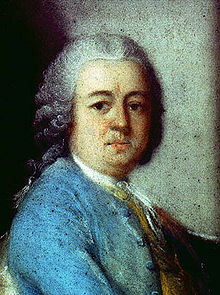Denn du wirst meine Seele nicht in der Hölle lassen (For you shall not leave my soul in hell), JLB 21, BWV 15, is a church cantata spuriously attributed to Johann Sebastian Bach but most likely composed by Johann Ludwig Bach.[1]

The piece was initially thought to be an early work of Johann Sebastian Bach. However, Bach scholars reattributed the piece to his cousin, Johann Ludwig Bach. The piece was likely composed in Meiningen in 1704 for the first day of Eastertide, known as Easter Sunday. There is some evidence that it may have been performed again under the aegis of Johann Sebastian Bach on 21 April 1726 in Leipzig. The prescribed readings for the day are 1 Corinthians 5:6–8 and Mark 16:1–8.[2]
It has been proposed that the text may have been authored by Christoph Helm (as suggested by W. Blankenburg[3]) or by Herzog Ernst Ludwig von Sachsen-Meinigen (as suggested by K. Kuester, a suggestion that gets more traction in recent scholarship).[2]
The piece is scored for two corni da caccia, two oboes, timpani, one oboe da caccia, violins, violas and viola da gamba, and basso continuo, four vocal soloists (soprano, altus, tenor, and bassus) and four-part choir.
It is in two parts, totalling ten movements:
Part one
Part two